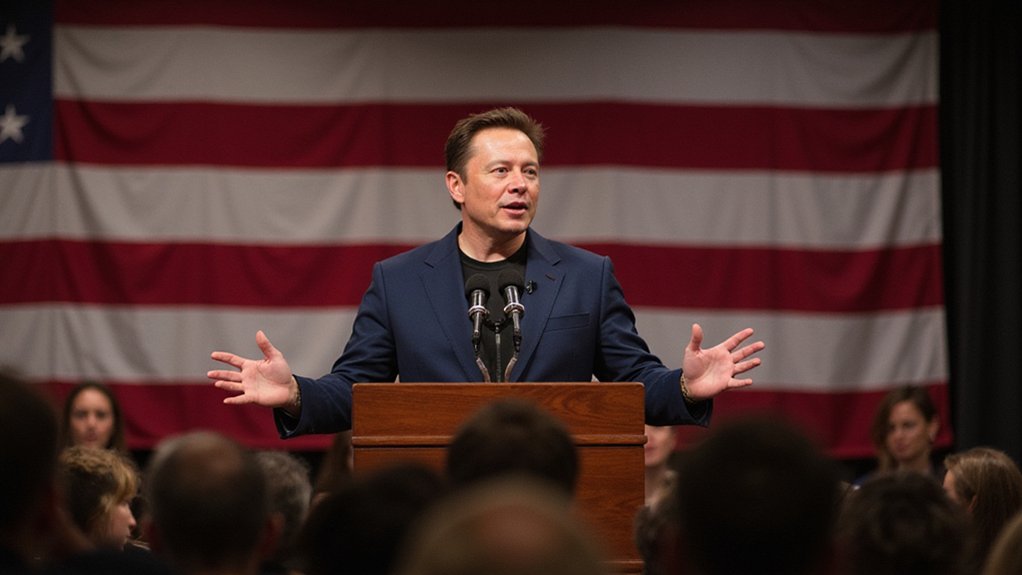A Twitter poll—hardly the traditional venue for launching political movements—has apparently convinced Elon Musk that America needs yet another political party, this one bearing the predictably modest name “America Party.”
The tech mogul‘s latest venture into the political arena emerged from his increasingly public feud with President Trump over the so-called “Big Beautiful Bill,” a spending package that Musk denounced as “debt slavery” for its potential to balloon the national debt by over $3 trillion.
The genesis of this political awakening traces to Musk’s X platform, where 65% of 1.25 million participants supported independence from the two-party system.
When subsequent engagement yielded 80% backing for a new party, Musk declared it “fate”—because nothing says democratic mandate quite like social media metrics.
The America Party name conveniently recycled his previous America PAC, which had supported Trump’s 2024 campaign before their spectacular falling-out.
Musk positions his creation as representing the “80% in the middle,” those purportedly abandoned by existing parties in what he characterizes as a “one-party system.”
This populist framing emerged alongside his vociferous opposition to Trump’s legislative package, which combined sweeping tax cuts for wealthy Americans with cuts to social programs including Medicaid and food assistance.
The bill’s passage featured political theater worthy of the era: a tie-breaking Senate vote by Vice President JD Vance and Trump’s threats of possible deportation against his former ally.
The America Party’s registration with election commissions signals serious intent, though practical challenges loom large. The party’s strategy involves focusing on winning key Senate and House seats to influence contentious laws rather than pursuing immediate presidential ambitions. Despite having spent $239 million on Trump’s 2024 campaign, Musk has indicated a potential reduction in political spending moving forward.
Federal election law caps donations to formal political parties far below what Musk might deploy through super PACs, where his spending remains unlimited.
State-by-state ballot access requirements present additional hurdles, as do the entrenched infrastructures and voter loyalties that Democrats and Republicans have cultivated over decades.
Whether Musk’s fiscal conservatism rhetoric about government waste and graft can translate into meaningful electoral traction remains questionable. The party’s success may also depend on how effectively it can navigate the varied regulatory frameworks that govern political organizations across different jurisdictions.
Third parties historically struggle against the structural advantages of established political machinery, regardless of their founders’ net worth or Twitter followings.
The America Party’s ultimate test lies not in polling data but in maneuvering the complex realities of American electoral politics.






